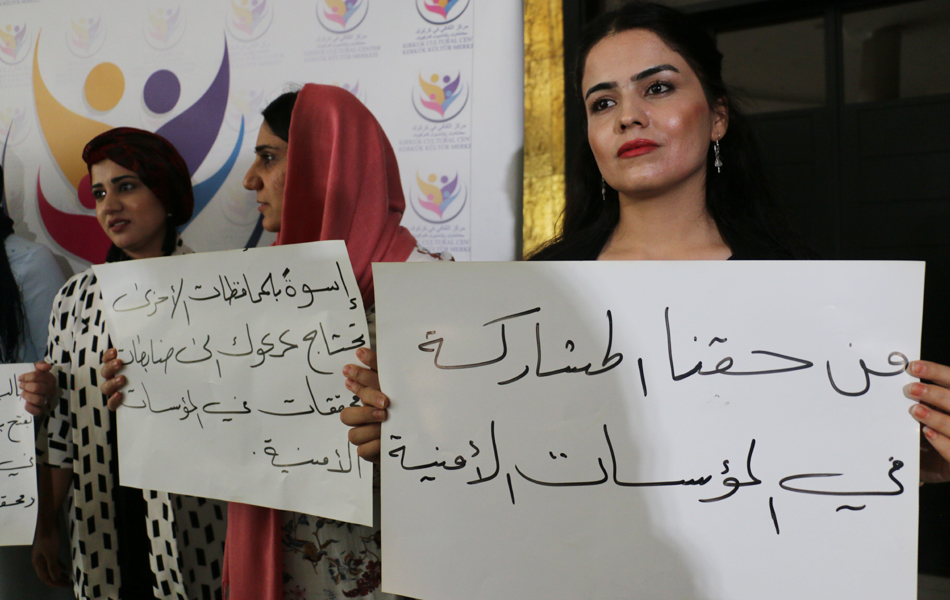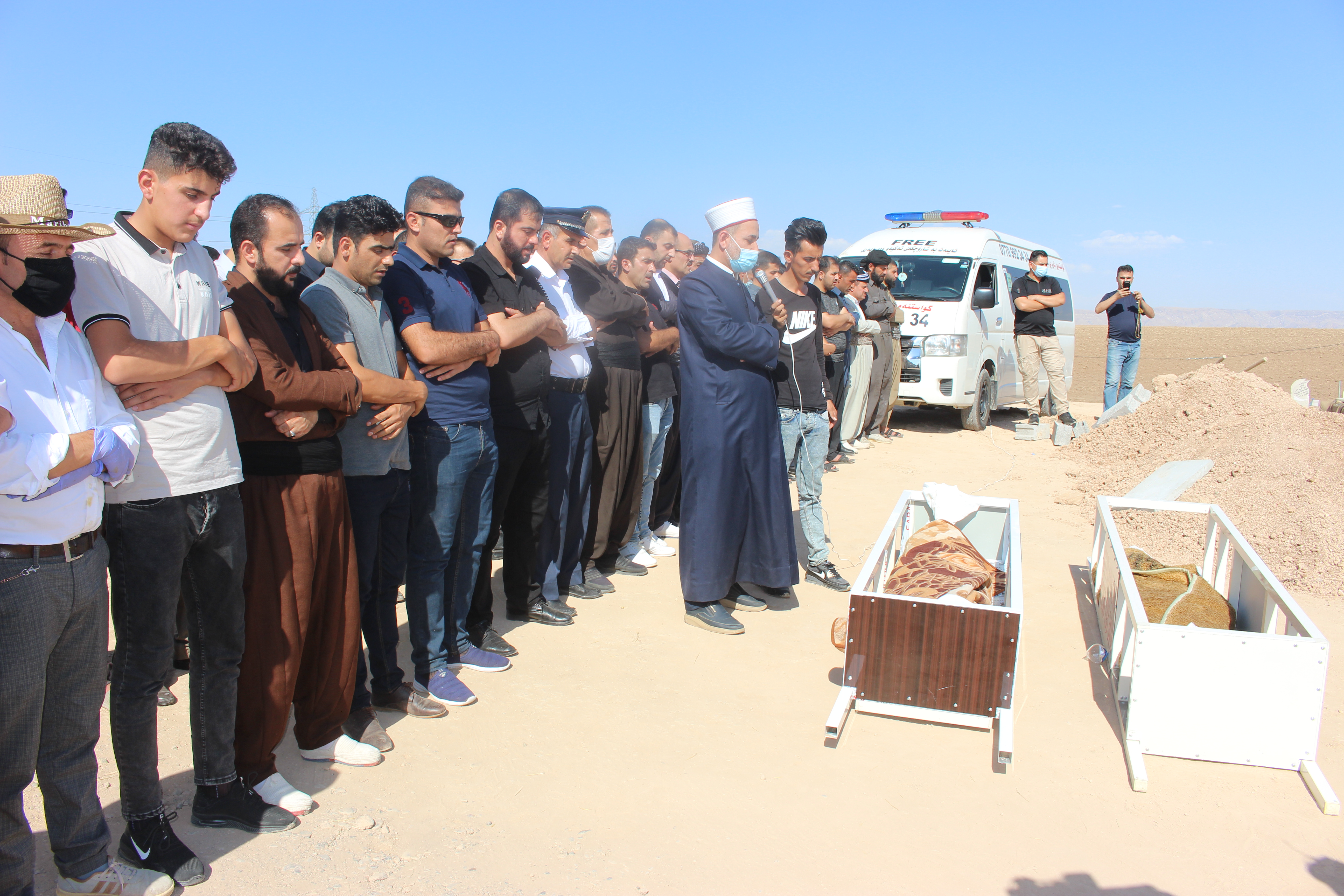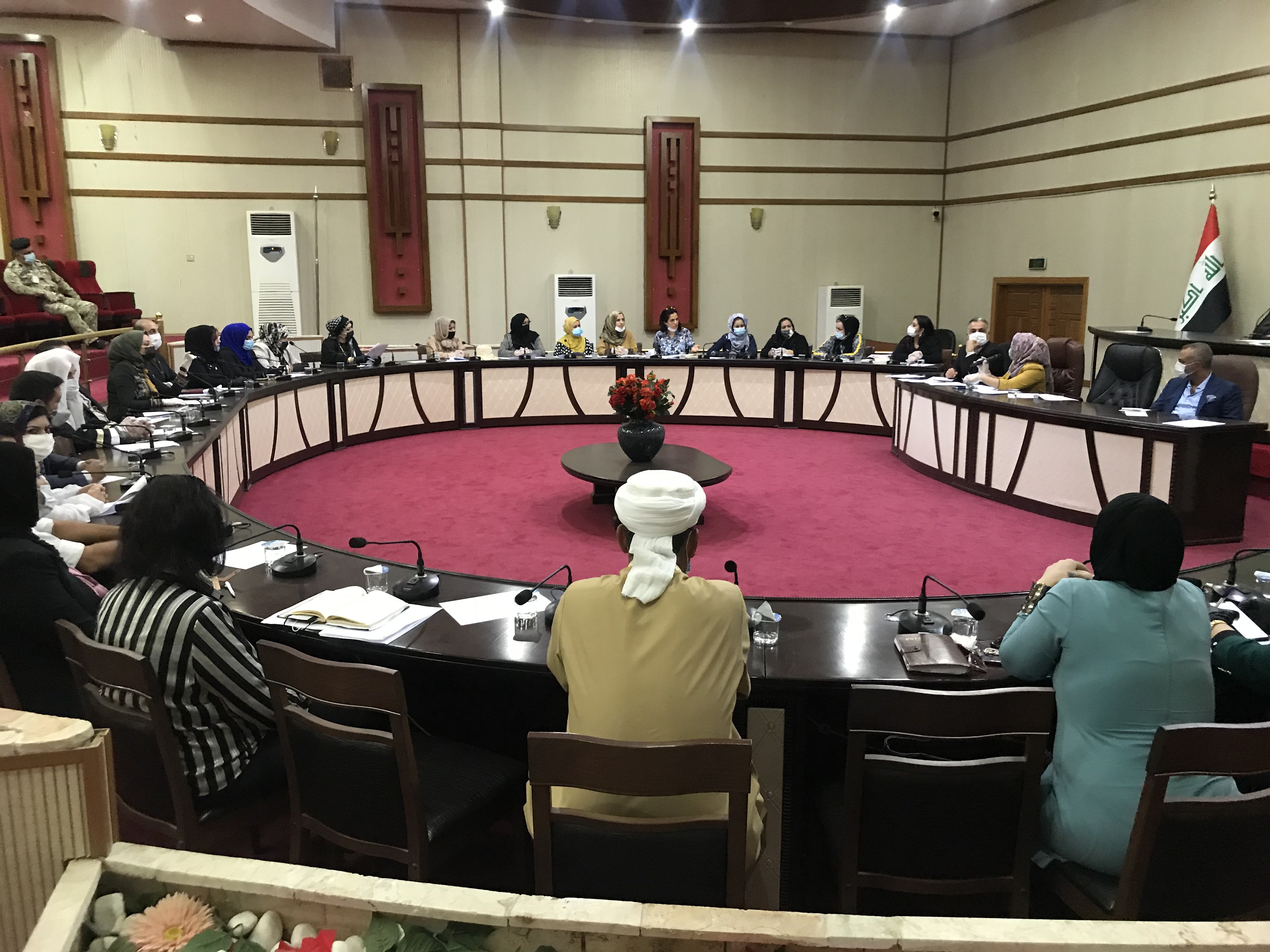Women and activists in Kirkuk are split into two camps of opponents and proponents of the Anti-Domestic Violence Resolution, which is soon to be debated in Parliament.
On 4 August the draft law was approved by the Council of Ministers and was sent to parliament to be debated and eventually passed. The resolution includes opening shelters for women under threat of violence, setting up special courts for domestic violence, and determining punishments for perpetrators.
The Resolution
The resolution includes 21 articles and sentences. It is meant to protect families, especially women and children, whom it refers to as “society’s weaker class.”
The proposed law stipulates the establishment of a high committee by the Council of Ministers under the name of High Committee for Countering Domestic Violence under the leadership of the minister of labour and social affairs. In addition, a department to be added to the Interior Ministry under the name The Department of Family Protection, along with the establishment of a special court to handle domestic violence cases.
The resolution also stipulates the establishment of shelters for victims of domestic violence.
There aren’t any shelters for victims of domestic violence in Kirkuk and other disputed areas.
Yusra Rajab, an member of Iraqi Parliament from Sulaymania, told KirkukNow: “The resolution hasn’t been debated in Parliament yet, but there is already much objection to it.”
There is internal and external pressure to get the resolution passed due to a rise in domestic violence, especially since the outbreak of the COVID-19 virus.
According to statistics from the Iraqi Ministry of Interior, there have been more than 5,000 cases of domestic violence in the first six months of 2020.
Four branches of the UN issued a statement in April this year, raising alarm about the rise of domestic violence in Iraq. Part of the statement read: “The adoption of a law on Domestic Violence will help to ensure that perpetrators of gender-based violence in Iraq, such as those who carried out the heinous incidents seen in recent past, are held accountable.”
A poll conducted by the Women Empowerment Department in Iraq of the General Secretariat of the Iraqi Council of Ministers showed that the highest rate of domestic violence cases among 11 provinces are in Kirkuk, Dohuk and Nineveh.
123 women claimed to have attempted scuicide due to abuse and threats, according to the poll.
Kirkuk’s opponents and proponents of the resolution
On 26 August, a number of women rights and HR organizations met in order to discuss the resolution, after the Iraqi Parliament leadership requested their notes on it.
Sroud Ahmad, head of Kirkuk’s branch of the Iraqi Hope Group, told KirkukNow: “This resolution will bring peace into families; we think that members of families will come closer to one another and live in peace when this resolution is passed.

The resolution needs some improvements and amendments, and for that, we should learn from the Kurdistan Region’s experience – the hurdles and problems they faced – so that we can take them into consideration and avoid them.”
The sentences that the resolution stipulates, include financial fines, which range between 3 million (about $2,500) and 5 million Iraqi Dinar (about $4,200), and prison sentences ranging from one month to one year.
we prefer getting it passed, because without any law, we won’t be able to prevent violence
Intisar Karim, an activist and a member of the Iraqi Hope Group, said: “Even though we don’t 100% agree with the resolution […] but we prefer getting it passed, because without any law, we won’t be able to prevent violence.”
Article 3 and 6 of the resolution talks about forming committees and setting up special courts for issues of domestic violence.
Intisar added: “There are issues with these articles. The main problem is that our judges are men and we do not have female judges. When women file lawsuits, they are not able to talk about all the details of their problems before a judge or policeman. That’s why there is an urgent need for the presence of women in committees, courts and the police.”
The resolution does not stipulate the gender of the members of the committees and court staff.

But Mohammad Nasraldin Sa’doun, a doctor, political activist and one of the participants in the meeting, believes that the resolution is not strong enough and will not have an impact on reducing violence.
"Half of the resolution consists of administrative orders and the formation of new ranks and positions, which we do not need; we need a real law that can be implemented. A law that can secure income for families and secure salaries for widows and divorced women. We need more important laws that will create job opportunities and reduces begging,” said Muhammad Nasraldin.
He added: “We want a law that protects the family.”
A controversial resolution
Disagreements and tensions are expected in parliament over the resolution, which, according to Representative Yusra Rajab, is already facing hostility.
There are many who claim that it degrades men and reduces the role of fatherhood
Rajab said: “"The bill has not yet reached Parliament, but we find some are standing against it already. There are many who claim that it degrades men and reduces the role of fatherhood, and say that it contradicts the principles of Islam.
This hostility against the resolution is not only related to religion, but what we see is that secularists also have a complete patriarchal mentality. They also view the issue with the same beliefs and reject the resolution. Some women are also standing against it.”
Ahang Anwar, a lawyer and head of the women advocacy organization Vian, told KirkukNow: "We see that there is strong opposition to the resolution on the grounds of sect, religion and gender, even. There are even some women activists among them."
Ahang, who was also one of the meeting’s participants, added: “A portion of women in our societies don’t know what their rights and duties are within family; the patriarchal mentality dominates, that’s why they reject the resolution.”






